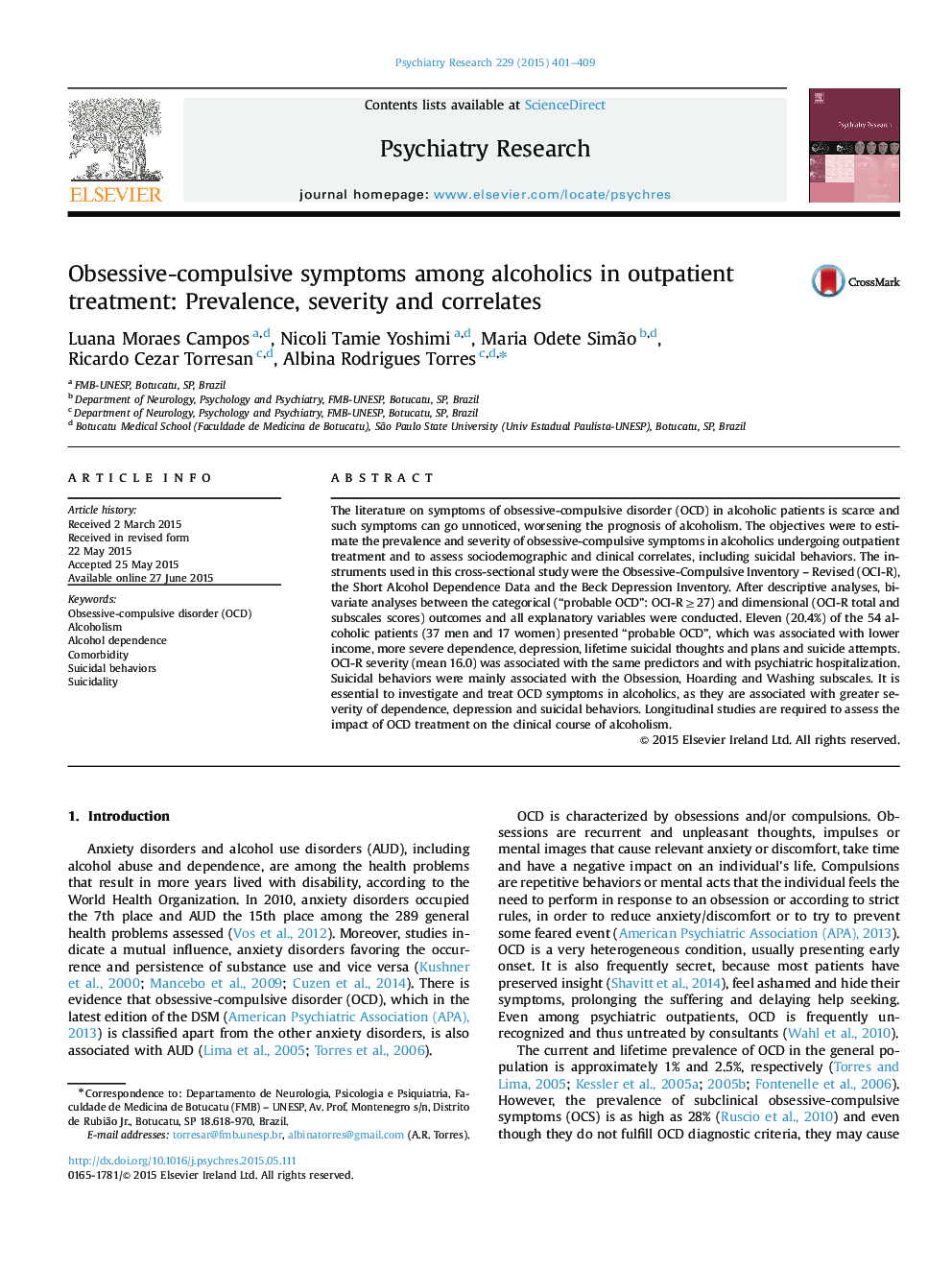| Article ID | Journal | Published Year | Pages | File Type |
|---|---|---|---|---|
| 6814194 | Psychiatry Research | 2015 | 9 Pages |
Abstract
The literature on symptoms of obsessive-compulsive disorder (OCD) in alcoholic patients is scarce and such symptoms can go unnoticed, worsening the prognosis of alcoholism. The objectives were to estimate the prevalence and severity of obsessive-compulsive symptoms in alcoholics undergoing outpatient treatment and to assess sociodemographic and clinical correlates, including suicidal behaviors. The instruments used in this cross-sectional study were the Obsessive-Compulsive Inventory - Revised (OCI-R), the Short Alcohol Dependence Data and the Beck Depression Inventory. After descriptive analyses, bivariate analyses between the categorical (“probable OCD”: OCI-Râ¥27) and dimensional (OCI-R total and subscales scores) outcomes and all explanatory variables were conducted. Eleven (20.4%) of the 54 alcoholic patients (37 men and 17 women) presented “probable OCD”, which was associated with lower income, more severe dependence, depression, lifetime suicidal thoughts and plans and suicide attempts. OCI-R severity (mean 16.0) was associated with the same predictors and with psychiatric hospitalization. Suicidal behaviors were mainly associated with the Obsession, Hoarding and Washing subscales. It is essential to investigate and treat OCD symptoms in alcoholics, as they are associated with greater severity of dependence, depression and suicidal behaviors. Longitudinal studies are required to assess the impact of OCD treatment on the clinical course of alcoholism.
Keywords
Related Topics
Life Sciences
Neuroscience
Biological Psychiatry
Authors
Luana Moraes Campos, Nicoli Tamie Yoshimi, Maria Odete Simão, Ricardo Cezar Torresan, Albina Rodrigues Torres,
